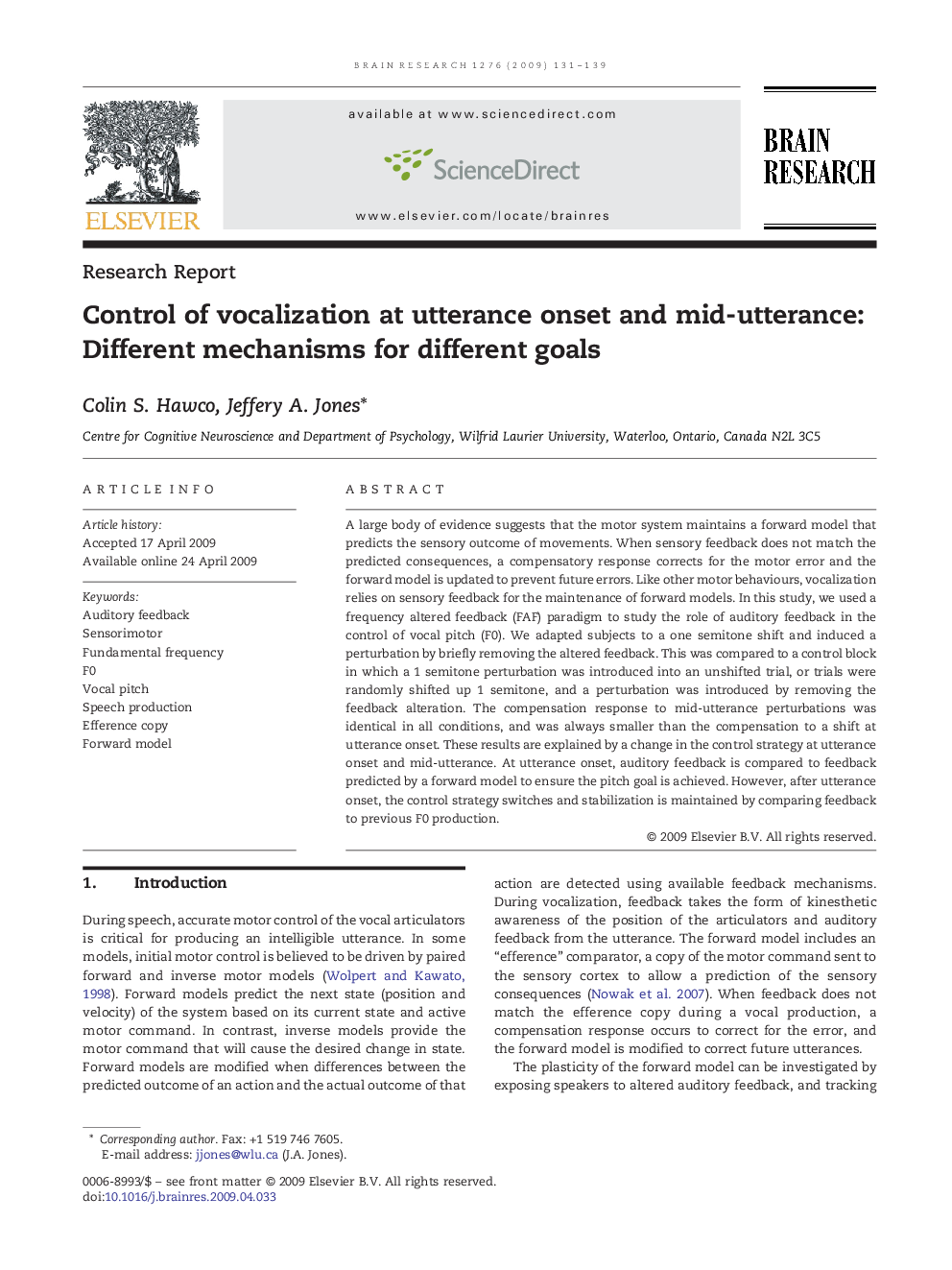| Article ID | Journal | Published Year | Pages | File Type |
|---|---|---|---|---|
| 4328182 | Brain Research | 2009 | 9 Pages |
Abstract
A large body of evidence suggests that the motor system maintains a forward model that predicts the sensory outcome of movements. When sensory feedback does not match the predicted consequences, a compensatory response corrects for the motor error and the forward model is updated to prevent future errors. Like other motor behaviours, vocalization relies on sensory feedback for the maintenance of forward models. In this study, we used a frequency altered feedback (FAF) paradigm to study the role of auditory feedback in the control of vocal pitch (F0). We adapted subjects to a one semitone shift and induced a perturbation by briefly removing the altered feedback. This was compared to a control block in which a 1 semitone perturbation was introduced into an unshifted trial, or trials were randomly shifted up 1 semitone, and a perturbation was introduced by removing the feedback alteration. The compensation response to mid-utterance perturbations was identical in all conditions, and was always smaller than the compensation to a shift at utterance onset. These results are explained by a change in the control strategy at utterance onset and mid-utterance. At utterance onset, auditory feedback is compared to feedback predicted by a forward model to ensure the pitch goal is achieved. However, after utterance onset, the control strategy switches and stabilization is maintained by comparing feedback to previous F0 production.
Keywords
Related Topics
Life Sciences
Neuroscience
Neuroscience (General)
Authors
Colin S. Hawco, Jeffery A. Jones,
